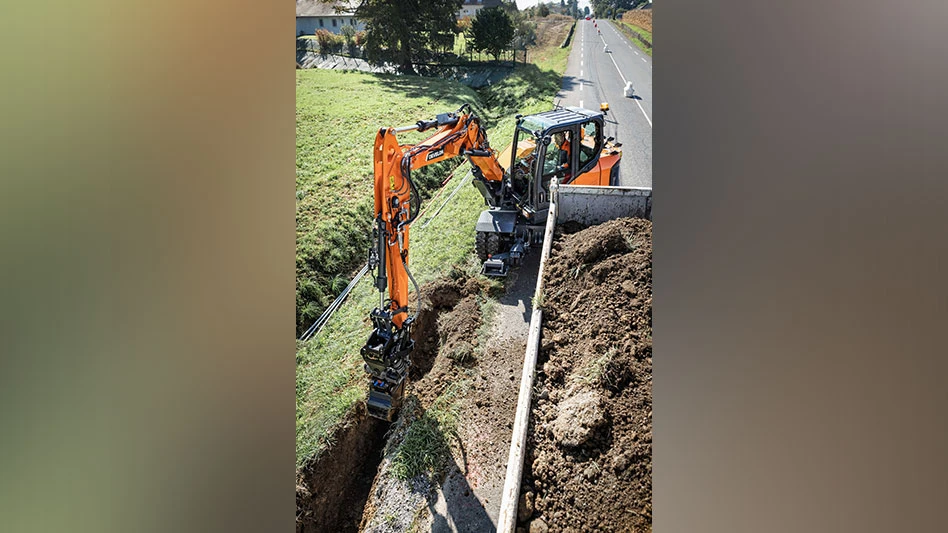
Photo courtesy of Develon
The U.S. Environmental Protection Agency has issued its final rule requiring the replacement of lead pipes in municipal drinking water systems and some types of structures within 10 years.
The early-October EPA announcement includes the revised final regulations and the targeting of $2.6 billion in spending tied to the initiative, with funds available from the Bipartisan Infrastructure Law passed in 2021.
“This final rule is part of the president’s commitment to replace every lead pipe in the country within a decade, making sure that all communities can turn on the tap and drink clean water,” according to the EPA.
Along with the Lead and Copper Rule Improvements (LCRI) final rule, EPA has announced $2.6 billion in drinking water infrastructure funding through the Bipartisan Infrastructure Law. That funding will flow through the drinking water state revolving funds (DWSRFs) and is available to support lead pipe replacement and inventory projects, the EPA says.
The agency estimates up to 9 million homes are still served through “legacy lead pipes” in different parts of the country.
"[The LCRI establishes] achievable, common-sense practices [that] have been implemented by several states and cities,” the EPA says. “The public health and economic benefits of the final rule are estimated to be up to 13 times greater than the costs.”
The disbursement of funds eventually should lead to project work for contractors specializing in utility and infrastructure work. The replacement pipes could provide a demand boost for makers of lead-free nonferrous alloys, pipes and fixtures and makers of high-density polyethylene (HDPE) plastic piping.
EPA has identified several cities or regions where lead pipe removal is planned or is underway.
Milwaukee Water Works in Wisconsin is on track to replace all remaining lead pipes within the EPA’s 10-year timeframe, says the agency. In 2024 , Milwaukee received approximately $30 million in Bipartisan Infrastructure Law funding to replace 3,400 lead service lines, according to the EPA.
The Detroit Water and Sewerage Department has received $90 million and will replace more than 8,000 lead service lines this year, putting the city on track to replace all lead pipes in 10 years.
Erie Water Works in Erie, Pennsylvania, has received $49 million from the EPA to enable it to replace all lead pipes within five years instead of a previous planned time horizon of 25 years.
In Colorado, Denver Water has accelerated its efforts through $76 million from the Bipartisan Infrastructure Law, allowing the city to be on track to replace all lead pipes within a decade.
“There is no higher priority than safety, and this announcement advances the safety of drinking water all across the country,” Milwaukee Mayor Cavalier Johnson says. “We are making progress through partnerships, and I am so pleased President Joe Biden and the Environmental Protection Agency are working with local governments to speed the replacement of lead pipes that carry drinking water into homes.”
The agency maintains a portion of its website that offers guidance on how potential pipe replacement candidates can apply for grants.
Latest from Construction & Demolition Recycling
- Cielo investor requests annual meeting
- CDE sets up washing plant on Long Island, NY
- NWRA: NIOSH cuts a step in the wrong direction
- Ferrous price hikes could be poised to pause
- Northstar secures 15-year lease extension for asphalt shingle recycling facility
- Greenwave asks for SEC filing extension
- Construction Plastics Initiative lines up projects
- ShearCore adds dealership group in Canada





